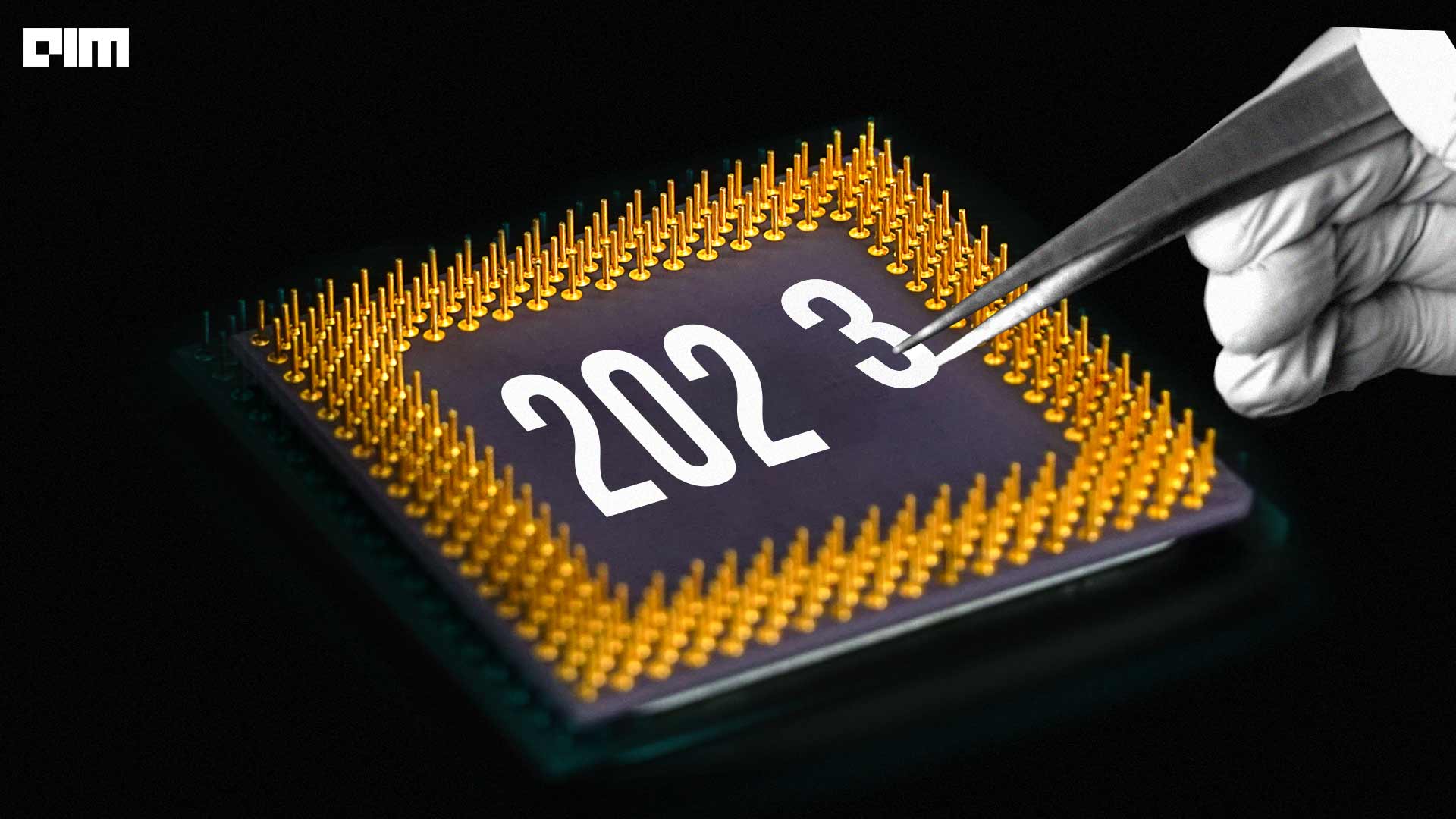ustom-designed AI chips tailored to specific needs are on the rise, and the focus on edge computing is driving the development of low-power, efficient AI chips. The post Top Most Powerful 5 AI Chips Released in 2023 appeared first...

In August this year, Gartner forecasted that the worldwide AI chips market would reach a whopping $53 billion in revenue. The major key drivers fueling this growth include the widespread adoption of AI across diverse industries and the escalating demand for efficient, specialized hardware to support AI workloads, particularly in healthcare, finance, and retail applications.
With the arrival of generative AI, the chip market is experiencing unprecedented growth, underscored by robust revenue projections and dynamic trends. Major players like NVIDIA, Intel, Qualcomm, AMD, and Alphabet are driving innovation, investing substantially in cutting-edge AI chip architectures.
Noteworthy trends include a shift towards diverse chip architectures, with GPUs maintaining dominance but facing competition from specialised AI chips and evolving CPUs. Custom-designed AI chips tailored to specific needs are on the rise, and the focus on edge computing is driving the development of low-power, efficient AI chips.
Technological trends, including neuromorphic computing and the nascent field of quantum computing, promise to elevate AI chip capabilities further. Moreover, the emphasis is on developing energy-efficient AI chips and advancing memory technologies
underscores the industry’s commitment to sustainability and performance optimisation.
Here is a list of the top 5 AI chips that made it to the market this year:
Gaudi 3
Intel’s Gaudi3 AI Accelerator, unveiled in December 2023, is reshaping the landscape of AI acceleration with a focus on generative AI. Crafted on an advanced 5-nanometer process, Gaudi3 boasts heightened performance and efficiency compared to its predecessor, Gaudi2.
Tailored for text-to-image and image-to-image processing tasks, this chip is a powerhouse for creating realistic art, manipulating photos, and designing products. Intel claims substantial performance improvements over Gaudi 2, potentially challenging competitors like NVIDIA’s H100 accelerator. Gaudi3’s scalability allows integration into systems with multiple chips, offering the ability to scale up performance for complex generative AI tasks.
AMD MI300
Launched in November 2023, the AMD MI300 family is set to disrupt the AI accelerator landscape by directly challenging Nvidia’s H100. Featuring a chipset architecture, the MI300 takes a modular approach, offering flexibility and scalability by mixing and matching different chipsets for computing, memory, and I/O.
Advanced packaging with 3D chip stacking enhances communication efficiency. Dedicated AI accelerators, including Matrix Cores optimised for AI workloads, multi-precision support, and ample memory capacity, position the MI300 competitively. While it may not match the H100’s raw performance in certain benchmarks, the MI300 shines in key AI tasks, particularly generative AI.
Google TPU v5e
The Google TPU v5e, released in August 2023, emerges as a powerhouse in AI hardware, specifically tailored for large language models and generative AI. Boasting a remarkable 2x improvement in training performance per dollar and a 2.5x uplift in inference performance per dollar compared to its predecessor, the TPU v5e offers substantial cost savings. Its groundbreaking multislice architecture enables the seamless connection of tens of thousands of chips, breaking previous limitations and opening avenues for tackling massive AI tasks.
With eight different virtual machine configurations, the v5e caters to diverse AI needs, from small-scale research to large-scale enterprise deployments. Technical specifications, including custom AI accelerators, HBM3 memory, and a robust inter-chip communication network, highlight its cutting-edge capabilities.
Amazon’s Trainium2
Amazon’s Trainium2, unveiled at re:Invent 2023, emerges as a cutting-edge AI chip tailored for the training and execution of large language models (LLMs) and tasks related to natural language processing (NLP) and generative AI. The architecture boasts dedicated AI-optimized cores, high memory bandwidth, and seamless inter-chip communication, resulting in a remarkable 4x performance improvement compared to its predecessor.
With a potential for 65 exaflops of performance in large clusters, Trainium2 is poised to handle unprecedentedly complex AI tasks. Its applications span LLM training, NLP tasks, and generative AI, paving the way for advancements in natural language understanding and creative text generation. Currently in limited preview through Amazon EC2, Trainium2’s wider availability is anticipated, with ongoing collaborations for optimized tools and libraries.
Azure Maia AI Accelerator
Azure Maia, Microsoft’s AI Accelerator, emerges as a groundbreaking advancement in AI hardware, purpose-built to meet the demands of complex AI workloads. Manufactured using a cutting-edge 5-nanometer TSMC process, the Maia AI chip boasts 105 billion transistors.
Its architecture positions it as a formidable tool for large language model training and inferencing, featuring specialised matrix multiplication units, high-bandwidth memory, and scalable inter-chip communication. With the promise of up to 5x faster training times and real-time inference capabilities, Azure Maia stands to accelerate AI development and improve energy efficiency. Its applications span large language models, generative AI, and various natural language processing tasks.
The post Top Most Powerful 5 AI Chips Released in 2023 appeared first on Analytics India Magazine.













